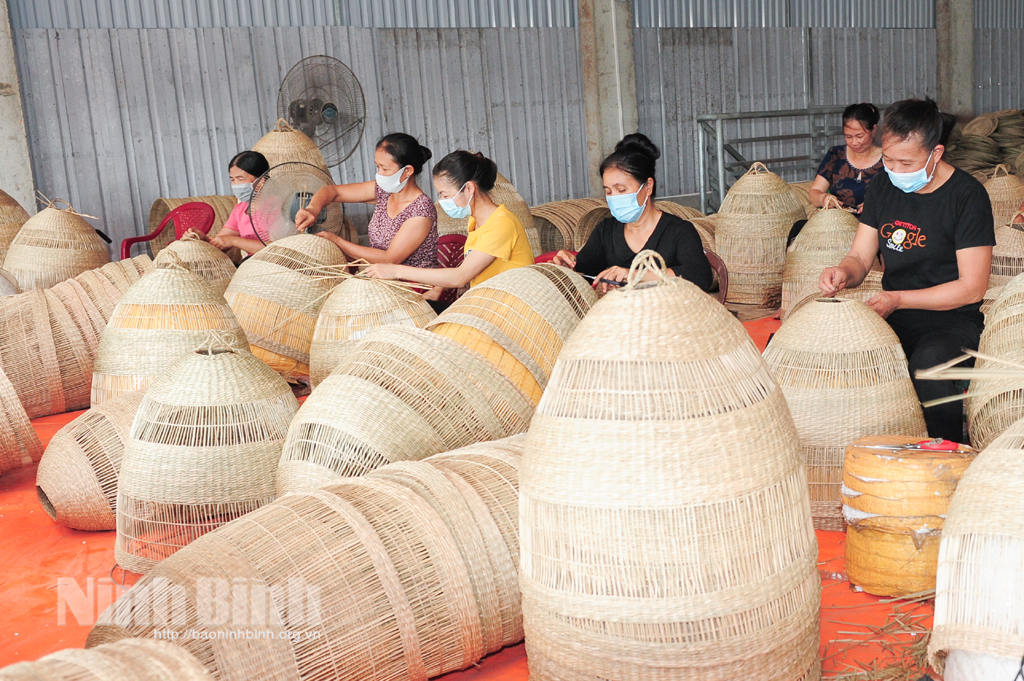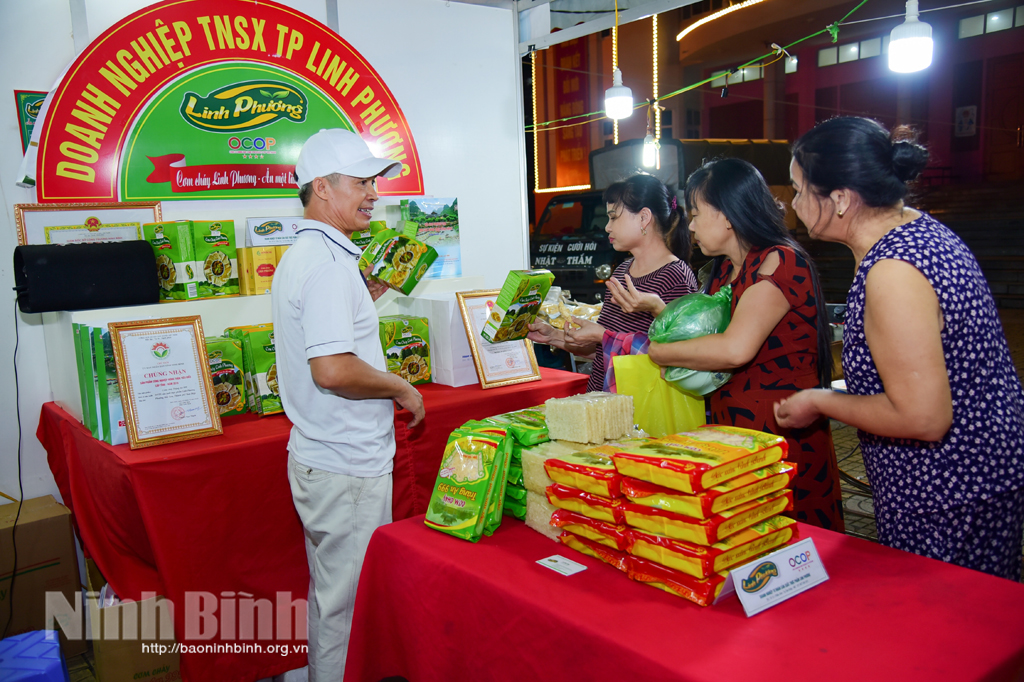OCOP programme gives boost to rural economy

Promoting local advantages and potential
Ninh Binh is seen as a province enriched with potential for rural economic development. It has 75 craft villages with a variety of unique and diverse products and a number of specialties such as goat meat, fried rice cake, shrimp sauce, Kim Son alcohol. These products are made from local materials and have traditional culture.
Besides, Ninh Binh holds potential for developing agricultural products like pineapples, passion fruits, vegetables, flowers, bonsai trees, poultry, cattle and aquatic products.
To implement the OCOP programme effective, over the past three years, Ninh Binh has given support to local farmers, business households, cooperatives and small enterprises to apply science and technology in manufacturing, improve quality of products, provide vocational training, develop large-scale concentrated production and better packaging and labels.
To date, the province has 26 OCOP products rated 3-4 stars. All of them are made from a combination of local resources, traditional culture, and advanced technology, which facilitates the development of diverse products with better quality and packaging, and origin traceability.
Affirming brands and position of OCOP products on the market
Joining the OCOP programme, enterprises, cooperative and business households will receive support to improve quality of products and renovating packaging and labeling.
All products getting OCOP certificates must satisfy 3-5 star standards, ensure safety requirements, have distingished logos or brands, register for lable protection and have QR codes or bar codes for origin tracing.
Many enterprises, cooperatives and business households who registered to join the programme pay more heed to applying VietGAP and GlobalGAP standards in manufacturing and agricutural production, thereby adding more value to OCOP products, helping to expand production scale and increasing revenues.
According to a recent survey, most of the enterprises, cooperatives and business households with OCOP- recognized products saw better market intergration and a rise of 10-15 percent in revenues.

Removing difficulties and creating breakthroughs
According to Pham Manh Ha, Deputy Head of the Divison of Rural Development under the Department of Agriculture and Rural Development, though Ninh Binh has reaped positive achievements in deploying the OCOP programme, there are still difficulties such as sluggish implementation and a lack of solutions to develop OCOP products in many communes.
Besides, there is no a specific policy for the OCOP programme while the expenses allocated for the programme is limited.
The linkages between enterprises, business households and farmers are loose while the capacity of businesses, cooperatives, cooperative groups and business households remains weak.
Moreover, the outcomes of the OCOP progamme fail to match with the province's potential. Many OCOP recognised products are still produced in a small scale and some key OCOP products have not built their own brands. The number of recognised OCOP products is small and most of them are rated 3-4 stars, while none gets 5-star rating at the national level.
Striving to have 150 OCOP products by 2025
Ninh Binh has defined that in the 2021-2025 period, it will pay heed to improving products' quality, expanding production scale and market and exporting key goods, especially handicraft products.
The province is striving to have 150 OCOP products by 2025.
To realise the above target, Ninh Binh needs to fulfill the followings tasks:
Assisting products development according to value chains and completing production models towards linking business households with cooperative groups, cooperatives and firms.
Increasing support to upgrade workshops; innovate production machines; improve packaging and lables; grant certificates of food hygiene and safety; publish standards, quality, bar codes and stamps of origin traceability.
Stepping up trade promotion, considering it as a key step to build a network to link production and trade activitities, and expand markets for OCOP products.
Implementing the OCOP programme synchronously and enhancing the role of localities in building their plans, assisting local farmers, business households and firms to join the program, and develop OCOP products.
Translated by Nguyen Thuy


